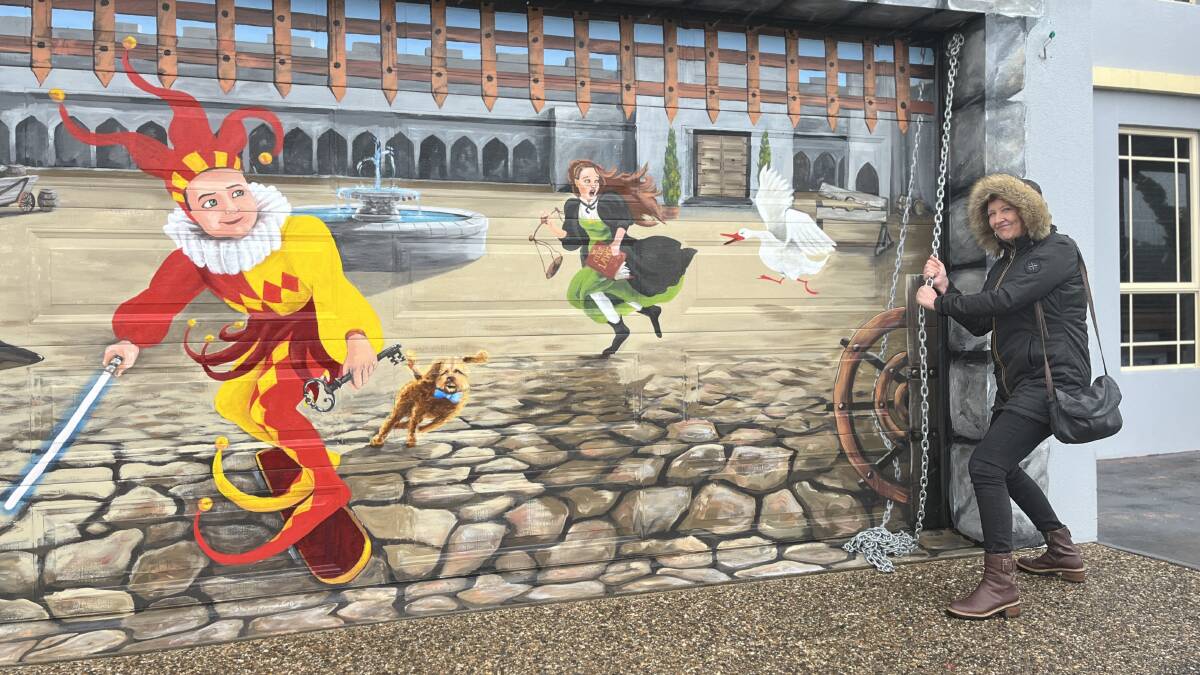Our life is an idea, not a prosaic fact. By this we don’t mean a rational idea, or ‘logical category’, but more a kind of ‘dreamlike’ or ‘poetical’ idea. It’s something that is entirely intangible! The biggest error we could ever make is to imagine that the world is something that is made up of ‘facts,’ or ‘logical categories’!
This is the biggest error that we ever could make, yet it is also the error we always do make. Not only this, but there is a tremendous force operating upon us all the time that is pushing us inexorably in the direction of making this grave mistake. This – in the traditional language of the mystics – is the direction of forgetting. When we forget that life isn’t something that is made up of facts we forget everything.
When we do forget that life or the world is not a concrete fact (but a dreamlike or poetical idea) then we become ‘sad without knowing it’; we become ‘flat’, we become ‘constitutionally miserable’. How could we not become flat or sad or constitutionally miserable when we forget that life isn’t a series of dull concrete facts? How could we not become wretched in ourselves when we lose the essential poetry of life? There is no joy in concrete facts or logical categories, after all!
There is nothing of interest in a concrete fact – nothing at all. A concrete fact is at all times ‘just what it is’. It is what it is – end of story. Finito. That’s what ‘a concrete fact’ means – that’s the whole idea. Obviously there’s nothing else to it, obviously there’s no other interpretation, no other level of meaning. The trail stops dead this here and there’s no point in looking any further. The trail stops dead here because there’s nowhere else to go…
How can we make a life out of a concrete reality? There’s no life here, not even a trace of it – there’s nothing more relentlessly sterile than the concrete reality, there is nothing more appallingly devoid of anything of interest. It’s a horror-story that – for the most part – we can’t see as such. The reason that we can’t see it as such is down to one thing and one thing only: the way that we have of projecting value onto this factual reality that doesn’t really exist there. We project a fantasy onto it.
Essentially, we imagine that certain ‘known outcomes’ are only are going to be extraordinary advantageous to us, whilst imagining others to the equally disadvantageous. We facilitate this trick via our complete lack of examination of the question as to why the good outcome is going to be so very good, why the bad outcome is going to be so very bad. As soon as we get the idea that such-and-such a defined outcome is either going to be good or bad then we just go along with it. We ‘run with this premise’ and we never look back! That’s the game that we’re playing…
If pushed, we would have to admit that we don’t exactly know why ‘succeeding’ is going to be so great; we are absolutely convinced that it will be of course, we’re completely sold on that, but at the same time there is an element of ‘mystery’ here, so to speak. Winning is going to be great but we don’t exactly know why! Losing is without question absolutely terrible, absolutely the worst thing ever – but again – we don’t really know why. We don’t go into it that much.
It could be said therefore that we have in this way ‘let uncertainty back into the picture via the back door’ (uncertainty being of course the one thing that is conspicuously missing from the concrete reality) but it is reappearing in a very feeble and de-potentiated guise. – Instead of ‘strong uncertainty’ (which is uncertainty that is being down openly acknowledged and seen face-to-face for what it is) it ‘denied uncertainty’ (uncertainty has never really been looked at, uncertainty that has been glossed over, uncertainty that has being swept under the carpet.
Uncertainty never really disappears, but it can be ignored and when we ignore uncertainty we enter into the world of polarity, the world of alternating opposites. When there is no middle ground (between a concrete yes and an equally concrete no) and all we can do is swing endlessly between the one polar extreme and the other; all we can do is swing endlessly between one polar extreme and another and neither of the two actually exist! ‘Polar extremes’ are our concrete projection upon the world to, they are ‘a device’, they are an artifact that has been created by our ‘artificial way of looking at things’, an artificial way of looking at things that we never pay any attention to.
This is a very different way of living life, therefore – it’s a way of living life that is based entirely upon the artificial way of looking at the world that we have adopted. It’s a way of living life that is based on ‘the thinking mind’, in other words! The way of living life that we are referring to here this the way where we are constantly moving from one opposite to the other, constantly in motion from one pole to another, whilst imagining that these poles actually exist in the world. We’re always either ‘making ground or losing ground’ in relation to these poles therefore (which is our game), but this so-called ‘movement’ doesn’t correspond to anything real (because it only has to do with our projections). We are completely convinced that the movement that occurs with respect to our categories, with respect to the polar opposites that we take for granted is real, but it isn’t.
This answers the question that we posed earlier when we asked how we could possibly live life on the basis of ‘concrete facts’ or ‘logical categories’. The answer – which is obvious enough when we see it – is that we automatically imbue the opposite that we are aiming at with a highly attractive quality (and this is of course the same thing as imbuing the polar opposite that we are trying to get away from with a highly disagreeable quality). This simply means that we are living life on the basis of ‘destinations’ rather than the journey’ itself. As Alan Watt says, we are not interested in the journey – all we ever want to do is to collapse the journey into nothing. All we ever want is to ‘get to where we’re going’ and skip over the in-between bit.
We hear this idea frequently enough, of course – we are always telling ourselves that it’s about the journey not the destination. The only problem is that we don’t listen to what it is we’re telling ourselves here. We obviously don’t listen because we are constantly living life on the basis of our goals. Goals are how we motivate ourselves – it is our goals which we focus on, not ‘the joy of the journey’. We live life via our thinking, via our ‘categories of thoughts’ in other words, and this is a habit that is very hard to break.
When we live life ‘on the basis of thought’, on the basis of our ‘logical categories’, then there is zero poetry in it. How can there be any poetry in chasing goals? Everything is very literal then, everything is very concrete, very ‘brusque and business-like’. There is nothing more literal than a logical category, nothing more concrete than a goal. The clumsy cogs of the thinking mind are moving, in their jerky, mechanical fashion, and we are moving along with them, in a similarly jerky fashion. Life itself is being missed therefore – all we know are the cogs, all we know are the categories of thought and the values we attribute to them. All we know is our own ‘polar navigational system’, and its projection upon the world.
This is what’s called ‘being trapped by our own device’, therefore! Life isn’t trapping us, our conceptualisation of it is. Life doesn’t have any fixed or final meanings in it, it doesn’t have any ‘meanings’ in it, in this sense. ‘Meanings’ (or ‘designations’) belong to the rational mind; life has poetry not ‘meanings’ in it, as we have already said, and poetry can’t be put into a box – much as we love putting things into boxes! When we let reality ‘be what it is’ (instead of slapping our own dull humourless designations on it) then ‘grows wings and takes off’ – but where it is taking off to we can’t all say! It certainly isn’t taking off in the direction of one of our polar opposites! The poetry comes about precisely because this isn’t what is happening…
In day-to-day life our attention flits from one idea to the other with never any gap between, but the thing about this is that there is no actual flavour in our thoughts; flavour is only to be found in reality, not in our symbolic representations of it. Our mental constructs don’t have any flavour (they don’t have any ‘flavour’ because they don’t partake in reality) but they do have something else instead. What they do have is a type of ‘magnetic influence’ – either the force of mechanical attraction or the force of mechanical repulsion. This is this substitution that is taking place – the compulsive duality of ‘repulsion/attachment’ replaces ‘flavour’ and no one ever notices what has happened here. No one ever notices the ‘loss of poetry’!
No one notices because we’re so caught up in trying to either obtain the good thing or avoid the bad thing. What we trying to obtain or avoid has, as we have said, nothing at all to do with poetry – ‘good’ and ‘bad’ are entirely literal terms – they don’t lead on to any exploration of the universe we exist in. They don’t actually lead anywhere! When we say that something is ‘good’ (or whatever term it is that we might employ in this connection) then this is a purely generic designation; it’s a ‘purely generic designation’ and there is no flavour in it at all.
‘Flavour’ means individual distinctiveness and there is no individual distinctiveness in our generic designations, obviously enough! And the rub is that the thinking mind projects its generic designations all over the surface of the world without leaving any gaps. All we are ever going to encounter therefore are these generic designations and – as we keep on saying – there’s no flavour in them whatsoever. They are ‘devoid of interest’. There is no flavour in our thoughts because is no reality in our thoughts. ‘The mind is the slayer of the real,’ as H. P. Blavatsky says. There is no reality in the world that thought makes and we never ever notice this. We never notice because we have quite forgotten that reality isn’t the same as our description of it. We’ve actually forgotten that there is such a thing as ‘reality’!
Art taken from catersnews.com – ‘Bansky saved my life’






